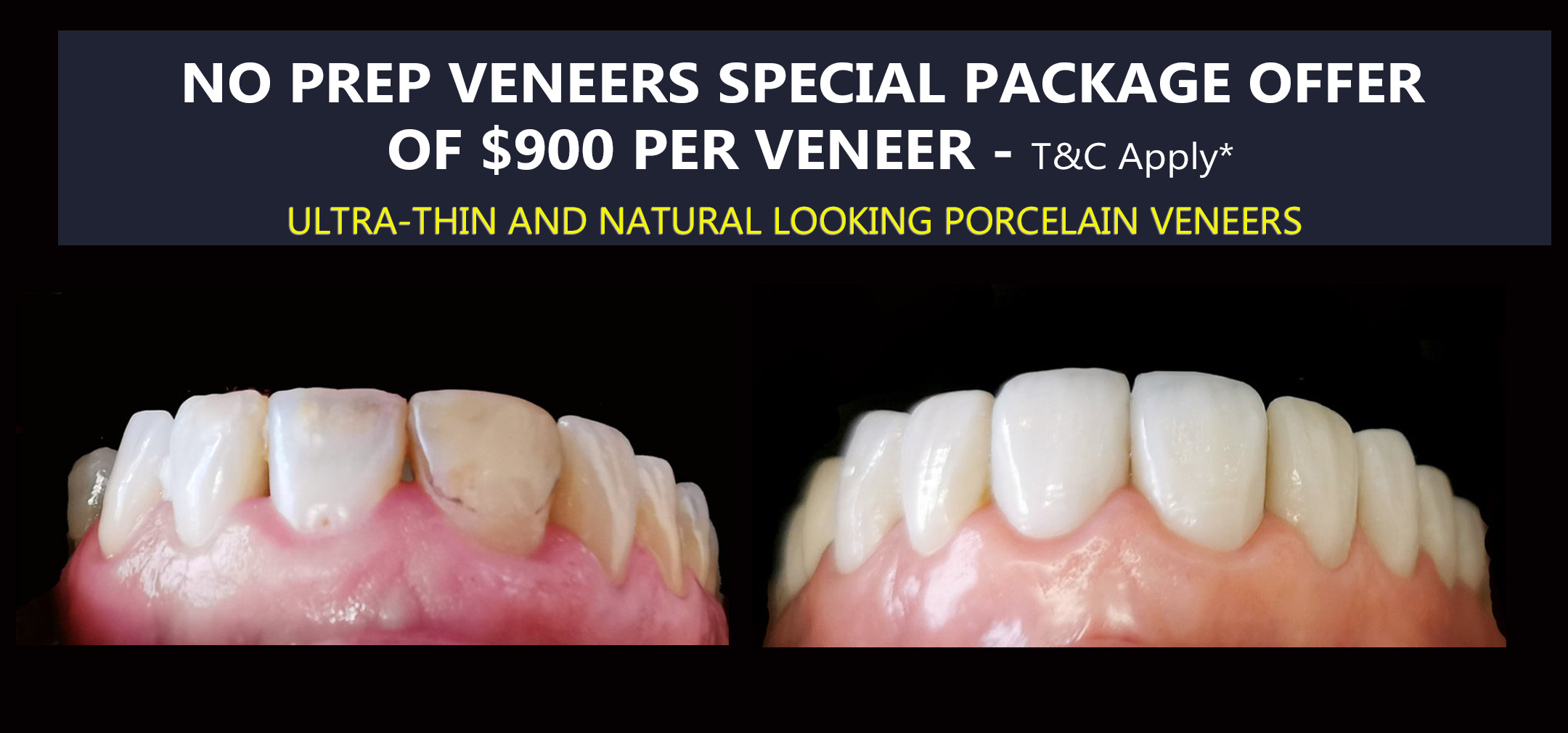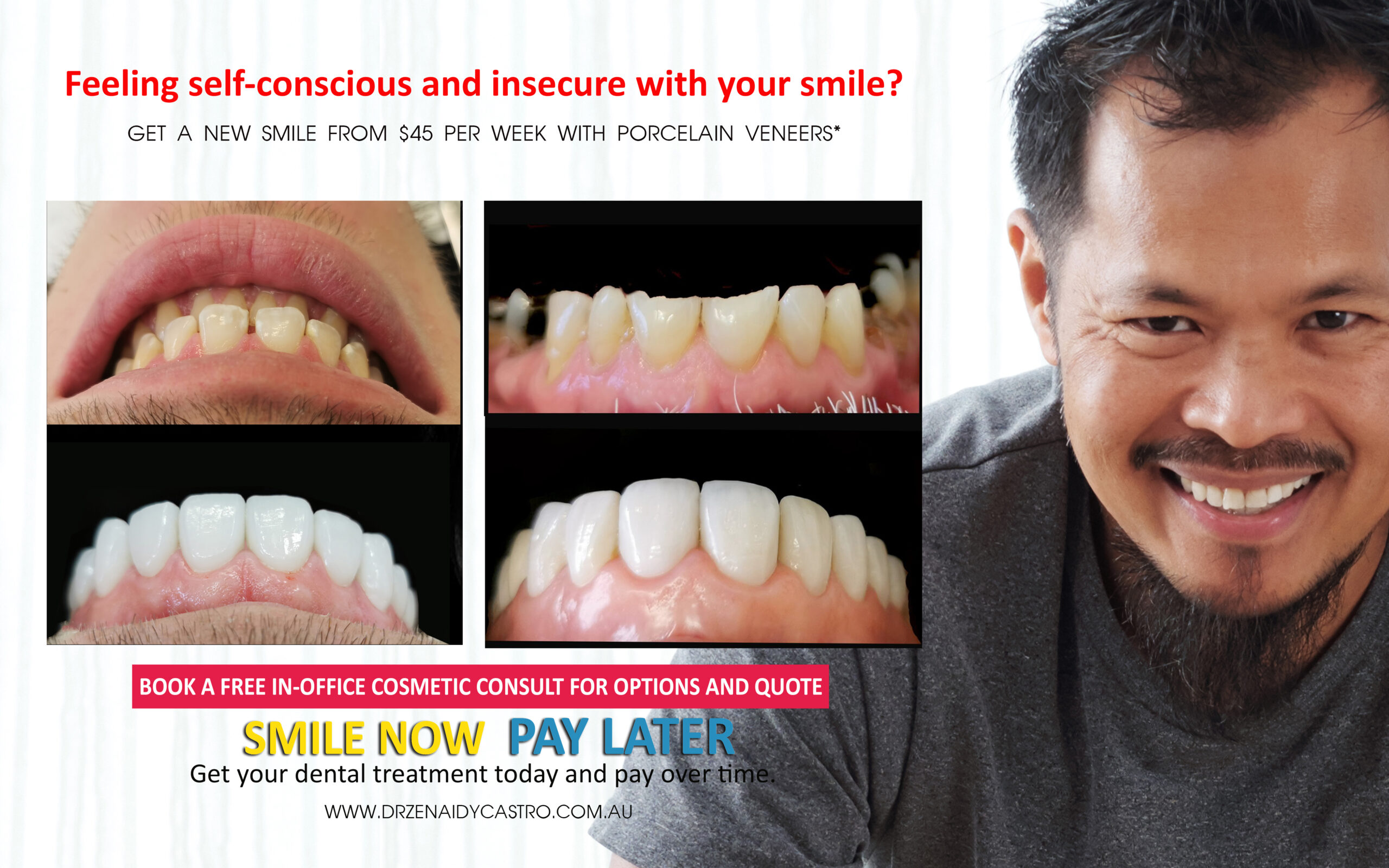
 Review the important terms and conditions that apply to this offer.
Review the important terms and conditions that apply to this offer.
Key Highlights: Best Age for Teeth Whitening
✨Under 14: Whitening not recommended — enamel is still developing; high risk of damage and sensitivity
✨Ages 14–18: Only under professional supervision — mild, dentist-approved at-home trays may be used; avoid self-applied kits
✨Ages 18–30: Ideal age for whitening — strong enamel, minimal restorations, excellent results with in-office systems like Zoom or Laser
✨Ages 30–50: Great results with proper planning — deeper stains from lifestyle habits may need combined in-office and take-home treatments
✨Ages 50+: Possible with custom plans — whitening becomes less predictable due to enamel thinning and restorations; gentler methods advised
✨Professional guidance is key at any age — customized treatment plans, safety measures, and desensitizers ensure effective and safe outcomes
✨Avoid DIY kits and beauty salon whitening — unregulated products can lead to uneven whitening, gum burns, and long-term damage
???? Call Vogue Smiles Melbourne and Noble Park today for a comprehensive general and smile makeover treatment — offering competitive pricing, bundled porcelain veneer specials, interest-free dental plans, and Superannuation access assistance.
REQUEST AN ONLINE PERSONALIZED QUOTE ➤
REQUEST FOR A FREE TELECONSULTATION ➤
Teeth whitening is a popular cosmetic procedure that enhances smiles and boosts self-confidence. But did you know age plays a crucial role in the effectiveness and safety of whitening treatments? Whether you’re a teen exploring your first cosmetic enhancement or a senior looking to restore brightness, it’s important to understand how age impacts your enamel, stain removal results, and overall oral health.
A bright, white smile has long been associated with health, confidence, and youth. For many people, teeth whitening is more than a cosmetic treatment — it’s a powerful boost to self-esteem and overall appearance. However, one crucial factor often overlooked in the conversation about teeth whitening is age. Our teeth go through many changes over a lifetime, and these age-related transformations can affect not only how well whitening works but also how safe it is.
Understanding the science behind age-specific tooth structure and treatment responses is vital for safe and successful results. From the legal and ethical concerns of whitening in young children to the physiological challenges faced by seniors, age plays a significant role in determining the most suitable whitening approach. This comprehensive guide explores the various whitening options available — in-office treatments, dentist-supervised take-home kits, and over-the-counter products — while breaking down their effectiveness and safety across different life stages.
How Teeth Change with Age
Teeth naturally darken over time. Younger individuals typically have thicker enamel, making them more responsive to whitening. As we age, enamel thins and dentin (which is yellowish) becomes more visible, often requiring different whitening strategies. Seniors may also face additional challenges like sensitivity, restorations, and medication-related staining.
Whitening by Age Group
- Children & Pre-Teens (<14): Whitening is not recommended due to immature enamel and high risk of irritation.
- Teens (14–18): Supervised at-home kits may be considered. Avoid over-the-counter or salon kits without dentist approval.
- Young Adults (18–30): Prime candidates for in-office whitening like Zoom and Sapphire. Best responsiveness and low risk.
- Adults (30–50): Whitening remains effective but may require stronger gels and longer sessions due to lifestyle stains.
- Seniors (50+): May need customized whitening plans. Non-vital teeth and restorations do not whiten, so consult a dentist first.
Understanding How Teeth Change with Age
Our teeth are not static structures. They undergo continuous changes from childhood to late adulthood, and these changes significantly influence how teeth respond to whitening treatments.
- Enamel Composition by Age: In children, the enamel is still developing and relatively porous, which makes it more vulnerable to external influences, including whitening agents. In adults, enamel is thicker and more calcified, providing better protection but also making whitening agents work differently. Seniors often experience enamel thinning, which reveals the underlying dentin — a darker, yellowish layer — and alters the appearance and reaction to whitening.
- Natural Darkening & Enamel Thinning: Over time, enamel becomes worn down due to chewing, acidic foods, and brushing habits. This thinning allows the naturally darker dentin to show through more prominently, making teeth appear discoloured even if they’re healthy.
- Dentin Exposure & Whitening Effectiveness: Since whitening treatments mainly act on enamel, exposed dentin presents a challenge. Dentin does not respond well to traditional whitening methods, which reduces overall effectiveness in older individuals.
- Age-Related Factors: Gum recession, lower saliva production, and the presence of restorations like crowns or fillings are common in older adults and can also impact the success of whitening treatments.
Teeth Whitening in Children and Pre-Teens (Under 14)
- Why Whitening Isn’t Recommended: At this developmental stage, children’s teeth are still growing, and their enamel is not fully matured. Using whitening products during this time can lead to damage, increased sensitivity, and long-term issues with enamel strength.
- Risks: The most significant concerns are irritation of the gums, tooth sensitivity, and the risk of over-bleaching, which can cause permanent enamel damage.
- Legal & Ethical Considerations in Australia: Regulations in Australia generally advise against cosmetic whitening for children under 18 unless it is clinically necessary. Performing whitening on young children without medical indication can result in professional and legal consequences.
- Safer Alternatives: For young children concerned with tooth discoloration, regular professional cleanings, proper brushing techniques, and dietary changes (e.g., avoiding dark sodas or excessive sugary snacks) can improve appearance without the risks of bleaching.
Teenagers and Whitening (14–18 Years)
- Increased Cosmetic Interest: As teens become more aware of their appearance, the desire for whiter teeth increases — often influenced by social media, peer pressure, or milestone events like graduations or school photos.
- Risks of DIY Kits: Many teens turn to over-the-counter or online kits without understanding the risks. These products can be too strong for adolescent enamel and, when used unsupervised, often lead to enamel damage, gum irritation, or inconsistent results.
- Need for Professional Monitoring: If whitening is to be done during the teen years, it should always be under dental supervision. A dentist can assess enamel maturity and recommend safe concentrations and application methods.
- Best Practices: Mild take-home trays with low-concentration peroxide gels are the safest choice for this age group. Dentists may also use fluoride treatments to reduce sensitivity and protect enamel.
- Addressing Discoloration Causes: Discoloration due to braces, poor oral hygiene, or fluorosis should be professionally evaluated to determine if whitening is appropriate or if other treatments (like microabrasion or veneers) might be better.
Whitening in Young Adults (18–30 Years)
- Prime Candidates for Whitening: With fully matured enamel and fewer restorations, young adults typically see the best and most consistent results from whitening treatments.
- Popular Whitening Systems: In-office treatments such as Philips ZOOM, Sapphire Laser Whitening, and LumiBrite are commonly used due to their efficiency, safety, and dramatic results. These systems use light or heat to activate whitening agents for faster effects.
- Advantages Over DIY Kits: While over-the-counter kits are accessible, they often lack precision, leading to uneven whitening or increased sensitivity. Professional systems offer customized trays and desensitizing agents to minimize discomfort and maximize results.
- Cost & Maintenance: Whitening isn’t permanent, so young adults should be informed of ongoing maintenance — which may include touch-up kits, lifestyle changes (avoiding staining foods and drinks), and good oral hygiene.
Whitening in Middle-Aged Adults (30–50 Years)
- Colour Changes with Age: This group often begins to see deeper stains due to accumulated lifestyle habits like coffee drinking, red wine, or tobacco use. Enamel may start thinning, and teeth may appear dull or yellowed.
- Resistant Stains: These are common in this age range and often require more intensive treatments. In-office laser whitening is typically more effective for stubborn stains than at-home kits.
- Risks of Repeated Whitening: Repeated whitening without professional guidance can wear down enamel and cause long-term sensitivity. Middle-aged adults should have regular dental assessments to avoid over-whitening.
- Smile Makeovers: For those with uneven results or persistent stains, combining whitening with cosmetic procedures like bonding or porcelain veneers may provide a more harmonious, long-lasting smile.
Whitening in Seniors (50+ Years)
- Challenges in Whitening: Enamel wear and increased dentin exposure make whitening more unpredictable and often less effective in older adults. Teeth may develop greyish or brown tones that don’t respond well to traditional whitening agents.
- Restorative Considerations: Crowns, bridges, fillings, and dentures do not whiten with bleaching agents. This can lead to uneven coloration unless restorations are updated or matched post-whitening.
- Customized Whitening Plans: Seniors benefit most from a personalized approach that includes professional cleaning, low-concentration gels, and perhaps cosmetic options like veneers or bonding for teeth that don’t respond well to whitening.
- Sensitivity Management: Seniors are more likely to experience tooth sensitivity, so gentler products like Sapphire Whitening (with built-in desensitizers) are preferred.
Comparing Whitening Systems by Age Group
| Age Group |
Recommended Method |
Sensitivity Risk |
Whitening Effectiveness |
| <14 |
Not recommended |
High |
Unsafe |
| 14–18 |
Mild at-home trays |
Medium |
Mild to Moderate |
| 18–30 |
In-office laser or Zoom |
Low |
High |
| 30–50 |
In-office + home combo |
Medium |
Moderate to High |
| 50+ |
Custom plan + desensitizers |
High |
Variable |
Key Factors Influencing Whitening Results by Age
- Enamel Thickness: Thicker enamel allows for more effective whitening; thinner enamel, common in older age, limits results.
- Type of Discoloration:
- Extrinsic: Stains from food, drinks, or smoking — more easily removed.
- Intrinsic: Stains from aging, trauma, or medications — harder to treat.
- Dental Restorations: Fillings, crowns, and veneers do not bleach, which can create uneven results if whitening is attempted without planning.
- Saliva Production: Reduced saliva, especially in seniors, can affect oral pH and whitening success.
- Lifestyle Habits: Coffee, wine, smoking, and poor hygiene accelerate staining and may require more frequent whitening or combination treatments.
Risks of Whitening at the Wrong Age
- Children: Whitening too early can lead to enamel erosion, increased sensitivity, and permanent damage.
- Teenagers: Unsanctioned use of whitening strips or kits can lead to poor outcomes and unnecessary risks.
- Adults: Over-whitening from repeated sessions can wear down enamel and cause chronic sensitivity.
- Psychological Impact: A cosmetic obsession in young individuals can create unhealthy self-image issues and unrealistic expectations.
- Unregulated Services: Whitening performed in beauty salons or purchased online without dental consultation can be unsafe and ineffective.
Why Professional Whitening Is Essential Regardless of Age
- Customized Treatment: Dentists can tailor whitening plans based on enamel thickness, sensitivity, age, and existing restorations.
- Monitoring: Adverse effects like gum burns, pain, or uneven whitening are less likely under supervision.
- Use of Desensitizers: Professionals apply gels or barriers to reduce or eliminate discomfort.
- Safety First: Professional systems avoid the risks associated with trends like charcoal whitening, overly concentrated peroxide, or illegal kits.
Summary: What Age Is Best to Start Whitening?
- Teens (14–18): Only under dentist supervision and with mild whitening systems.
- Young Adults (18–30): Best results — safe and effective with professional guidance.
- Middle-Aged (30–50): Whitening still effective but requires more planning for deeper stains.
- Seniors (50+): Whitening is possible, but often needs to be part of a broader cosmetic strategy.
Closing Statement
Teeth whitening can be an empowering and transformative part of your smile journey at any age. But understanding how age affects tooth structure and response is essential to ensuring safe, successful outcomes. From youthful cosmetic concerns to mature dental needs, each age group has specific considerations and ideal whitening solutions.
If you’re considering whitening, don’t go it alone. Trust a qualified dental professional to assess your oral health, recommend the safest method, and guide you through a personalized whitening plan. With the right timing and professional care, you can enjoy a brilliant smile that radiates health and confidence — no matter your age.
Is There a “Right” Age for Whitening?
The best age for teeth whitening depends on enamel maturity, lifestyle habits, and the individual’s oral condition. Always consult with a dental professional to ensure safe, effective results. At Vogue Smiles Melbourne, we tailor whitening treatments to suit your age, lifestyle, and sensitivity level.
???? Ready for a Brighter Smile?
Call Vogue Smiles Melbourne today to book your professional teeth whitening consultation. Don’t let age or myths hold you back — get safe, effective whitening that’s custom-designed for your unique smile!
Book online anytime:
Request a free teleconsult:

Ready to Reveal the Radiance in Your Smile?
Your dream smile is within reach. With over 30 years of expertise in Cosmetic Dentistry, we’re here to guide your transformation with gentle care and flexible payment solutions. Book your consultation now and begin your journey to a brighter, more confident you!
Book Your Teeth Whitening Consultation
???? Call (03) 9629 7664 | 0413 014 122
REQUEST AN ONLINE PERSONALIZED QUOTE ➤
REQUEST FOR A FREE TELECONSULTATION ➤



Disclaimer:
The information on this website is for information purposes only. Is not a substitute for a proper professional care and advice. Each patient’s outcomes, risks, potential complications, and recovery differ. Any dental procedure, minor or major, carries risks, some minor and some serious. Before and after images seen on our Social Media and website pages are our actual patient and have been published/posted with our patients’ permission. All of our patients photos are subject to Copyrights protection. We are strong believers in responsible aesthetics. Every cosmetic, medical, or dental procedure comes with its own set of risks and benefits. Cosmetic Dentistry results will vary from patient to patient. Call our office and book for an actual in-office consultation for us to assess if you are a good candidate for a particular treatment. All of our Specials and packages posted on this site are subject to terms, conditions and availability. The exact fee for a particular cosmetic procedure will be determined after a preliminary assessment distinguishing your unique personal needs and the type of work needed. The prices mentioned on any of our website as well as any mentioned payment plan by a third party source, are just a guide and is subject to change. Call the third party financing providers or visit their website for more info. Please call the office on 9629-7664 for further queries or clarification.




